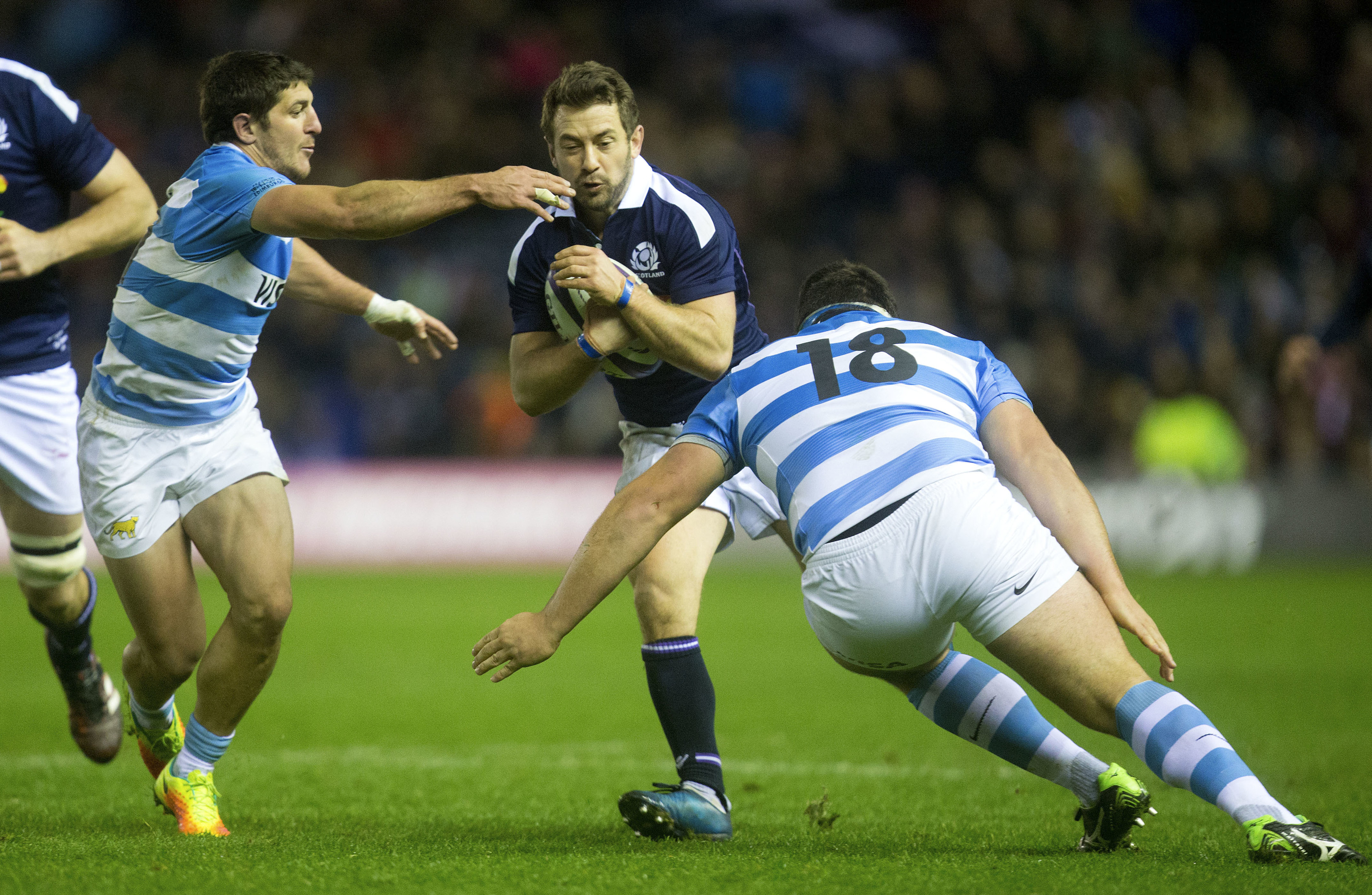Everything came right in the end for Scotland against Argentina at BT Murrayfield on Saturday – even the awful pre-match entertainment.
The combination of pipers, pub singer and Highland Dancing cheerleaders delivering Journey’s soft-rock “classic” “Don’t Stop Believing” induced nothing but cringeing at the time. Yet the team, for once, took that tired old chestnut’s obvious message to heart.
In the dying minutes, according to head coach Vern Cotter and skipper Greig Laidlaw, they kept believing that this time they would, finally, close out a close game.
The execution of the phase play to get them into position to break the 16-16 tie wasn’t really any more convincing than it had been in failing against Australia a week previously. Scotland had fumbled or been turned over in all but two previous visits to the Pumas’ 22, so confidence among the nail-biting legions in the 50,000 crowd couldn’t have been that high.
The Scots were inching towards position for a drop goal but Finn Russell had already failed twice, and while the young stand-off has many outstanding talents, it’s safe to say that drop kicking is not one of them.
However, as if the karma for the Wallaby loss – when Scotland played a whole lot better than they did on Saturday – was being returned in spades, Juan Manuel Leguizamon, the second most capped player on the field, executed a brainless chop tackle on Ross Ford, the most capped player.
Not every referee would have blown for it, and Cotter thought Ben O’Keefe could have given at least one other penalty in the phases beforehand. But the Kiwi ref, in only his third test, had no hesitation, as Pumas head coach Daniel Hourcade conceded with a terse “Si” when asked afterwards if had been a legitimate award.
Greig Laidlaw booting the penalty to win it was perhaps inevitable and maybe a microcosm of the match – the skipper had his most difficult game in a Scotland jersey for well over a year, struggling with clearance at a messy breakdown where Argentina targeted disruption with some success.
Not the quickest at delivery at the best of times, the skipper was laboured, his kicking from hand was too long and he was caught at the base twice in the first half. Yet his kicking from the tee – albeit a continuing dispute with the right hand post at the north end of the stadium which elongated the drama – and his leadership skills were much to the fore.
There was the conference behind the posts after Juan Martin Hernandez’s exquisite cross kick provided the impressive Matias Orlando to smash through two tackles for Argentina’s try and an ominous looking 13-6 lead, where the message of belief worked wonders.
Scotland hit back within four minutes, Huw Jones slipping his opposite number’s tackle for the second week in a row to feed Sean Maitland to finish, and after Nicolas Sanchez briefly regained the lead for Argentina the Pumas effectively surrendered the ball to their hosts for the rest of the game.
The Scots certainly were far from perfect, Cotter bemoaning the amount of squandered attacking opportunities, but when it counted Laidlaw urged them on and organised well.
For all that debutant Magnus Bradbury, Fraser Brown and Grant Gilchrist had decent games, the greater experience of Ford, Tim Swinson and Ryan Wilson on the pitch for the dying minutes unquestionably helped.
Swinson and Wilson in particular are unsung figures in the Scots squad, and they brought a bit of necessary dig and drive for the final push.
Still, Scotland lacked real composure at the death. They won lineout ball at the Argentina five metre line and overthrew the jumper, Laidlaw was unlucky with the penalty that hit the post but it’s one he’d usually make and he nailed the much more difficult conversion of Maitland’s try.
The set-up to both Russell drop goals was less than slick and had it not been for Peter Horne’s brave recovery after the charge down of the second – which resulted in him being injured – Argentina could have scored at the other end.
Eventually Leguizamon helped the Scots out. And while there’s real resilience in the team – witness a successful goal-line stand with a creaking scrum before half-time – I’d like to see more evidence before truly believing that the Scots are ice-cool in pressure situations.
They won’t find Georgia next week a pushover, especially up front. Zander Fagerson did a yeoman’s job on the tight head for 50 minutes but Scotland’s scrum was on the retreat when Moray Low replaced him.
Jon Welsh, starting every week for Newcastle – Low hardly gets a game for Exeter – is surely the safer bench option even if he does less about the field, at least until WP Nel returns.
But although it was a disjointed performance, a win is a win. And even if it wasn’t a classic, one in these circumstances is worth just a little more, given how many have been lost from the same situation.
“Don’t Stop Believing” indeed. Only, keep the song in the privacy of the dressing room next time, guys.
